Courses after 12th for Biology students is an issue for many as people are not aware about the various options. Biology is a very interesting subject and many students from the sciences go for PCB as an option in 11th and 12th. However , most of the parents and students are aware about only medical as a career option after 12th Biology. Few of the options like Microbiology or Bio Technology or Biochemistry are also know to some parents. Biology gives the scope to not just study human beings but animals, plants , birds and micro-organisms. If you are interested in biology and enjoy this subject there are a huge number options possible. There are many courses for Biology students after 12th .
In this blog I am have mentioned about 15 such options which are non medical, non paramedical and not pure Botany and Zoology. You will be amazed to note these options.
Most of the options are available in many Universities and you can check out in any institute of your choice.
1. GENETICS
Genetics is the study of how different qualities, called traits, are passed down from parents to child. Genetics helps explain what makes you unique, why family members look alike, and why some diseases run in families. When we trace the paths of these qualities, we are following packages of information called genes. Students study about genes, inheritance, heredity and how genetic traits are passed down from one generation to another
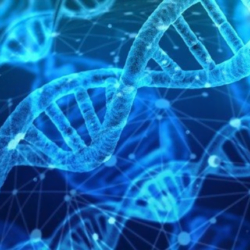
Scopes-
- Geneticist
- Immunologist
- Cytogeneticist
- Research scientist
- Forensic DNA analyst
- Research associate
Opportunities-
- Genetics testing labs
- Hospitals
- DNA Forensic department
Agriculture pharmacy
Courses- B.Sc… (Genetics) 3 years: Eligibility- 10+2 PCB:: Advanced courses- M.Sc. (Genetics), Ph.D. , M.Phil,
2. Bio Informatics
Bioinformatics is defined as the application of tools of computation and analysis to the capture and interpretation of biological data. It is an interdisciplinary field, which harnesses computer science, mathematics, physics, and biology.
It is the study between biology, computer and IT.
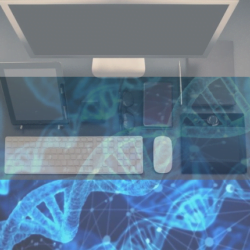
Scope-
- Bio Analyst
- Bio Informatics Programmer
- Clinical Pharmacologist
- Medical Coding
- Research
Opportunities-
- Pharmaceutical Companies
- Healthcare Organization
- Research Agencies
Courses- B.Sc… (Bio Informatics) 3 years: Eligibility- 10+2 PCB:: Advanced courses- M.Sc.. (Bio Informatics)
3. Bio-Technology:
At its simplest, biotechnology is technology based on biology – biotechnology harnesses cellular and bimolecular processes to develop technologies and products that help improve our lives and the health of our planet. We have used the biological processes of microorganisms for more than 6,000 years to make useful food products, such as bread and cheese, and to preserve dairy products.
Modern biotechnology provides breakthrough products and technologies to combat debilitating and rare diseases, reduce our environmental footprint, feed the hungry, use less and cleaner energy, and have safer, cleaner and more efficient industrial manufacturing processes.
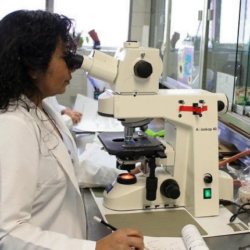
Wild scope and opportunities in Bio technology in fields of-
- Medicine
- Waste management
- Marine
- Pharmaceuticals Industry
- Agriculture and Environment
- Chemicals
- Energy
- Food processing
- Bio processing
- Animal husbandry
- Genetic engineering etc.
Courses- B.Sc. (Bio-technology) 3 years: Eligibility- 10+2 PCB:: Advanced courses- M.Sc.. (Bio-technology)
4. Biochemistry:
Biochemistry explores chemical processes related to living organisms. It is a laboratory-based science combining biology and chemistry. Biochemists study the structure, composition, and chemical reactions of substances in living systems and, in turn, their functions and ways to control them.
As the broadest of the basic sciences, biochemistry includes many subspecialties such as neurochemistry, bioorganic chemistry, clinical biochemistry, physical biochemistry, molecular genetics, biochemical pharmacology, and immunochemistry.
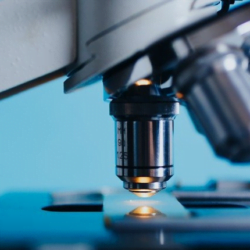
Scopes and opportunities-
- Biochemical scientist
- Forensic scientist
- Research scientist
- Toxicologist
- Clinical lab technologist
Scopes and opportunities-
- Healthcare scientist
- In Pharmacy
- Medical coder
- Professor
Courses- B.Sc… (Biochemistry) 3 years: Eligibility- 10+2 PCB:: Advanced courses- M.Sc.. (Biochemistry)
5. Microbiology:
Microbiology is the study of all living organisms that are too small to be visible with the naked eye. This includes bacteria, archaea, viruses, fungi, prions, protozoa and algae, collectively known as ‘microbes’.
This discipline includes fundamental research on the biochemistry, physiology, cell biology, ecology, evolution and clinical aspects of microorganisms, including the host response to these agents. It’s a vast field with many sub branches like Immunology, Bacteriology, Virology, Mycology etc.
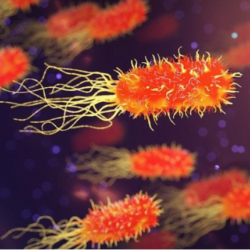
Microbiology can be divided into two branches: pure and applied. The former is the most fundamental branch, in which organisms themselves are examined in-depth. In applied microbiology, the organisms themselves are not studied but are applied to a certain process.
Scopes and opportunities-
- Microbiologist
- Immunologist
- Virologist
- Bacteriologist
- Mycologist
Scopes and opportunities-
- Professor
- Clinical research scientist
- Water quality lab technicians
- Food technologist
- Pharmacologist
Courses- B.Sc.(Microbiology) 3 years: Eligibility- 10+2 PCB:: Advanced courses- M.Sc. (Microbiology)
6. Environmental Science:
Environmental science is an interdisciplinary academic field that integrates physical, biological and information sciences (including ecology, biology, physics, chemistry, plant science, zoology, mineralogy, oceanography, limnology, soil science, geology and physical geography, and atmospheric science) to the study of the environment, and the solution of environmental problems.

Today it provides an integrated, quantitative, and interdisciplinary approach to the study of environmental systemsIt includes various fields related to environment like natural resources, conservation, pollution, environment law, waste management, etc.
Scope-
- Environmental scientist
- Environmental consultant
- Lecturer
Opportunities:
- Environmental consultancies/Industries
- Fertilizer plants
- NGOs
- Pollution control boards
- Waste treatment plants
- Different government departments and agencies etc.
Courses- B.Sc. (Environmental science): Eligibility- 10+2 PCB :: Advanced courses- M.Sc. (environmental science)
7. Physiology:
Physiology is the study of how the human body works. It describes the chemistry and physics behind the basics of body functions from how the molecules behave in cells to how systems of organs work together. It helps us to study what happens in everyday life of a healthy body and what goes wrong when someone is sick.
Most of the physiology depends on basic research studies carried out in labs.
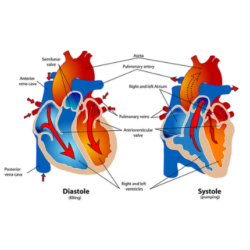
Physiology involves the study of human body, organs and how our cells, muscles and organs work together and interact. Some physiologists study single proteins or cells, while others might do research on how cells interact to form tissues, organs, and systems within the body.
Scope-
- Environmental scientist
- Environmental consultant
- Lecturer
Opportunities:
- Environmental consultancies/Industries
- Fertilizer plants
- NGOs
- Pollution control boards
- Waste treatment plants
- Different government departments and agencies etc.
Courses- B.Sc. (Environmental science): Eligibility- 10+2 PCB :: Advanced courses- M.Sc. (environmental science)
8. Biophysics:
Biophysics is the field that applies the theories and methods of physics to understand how biological systems work.
Biophysics has been critical to understanding the mechanics of how the molecules of life are made, how different parts of a cell move and function, and how complex systems in our bodies—the brain, circulation, immune system, and others— work. Biophysics is a vibrant scientific field where scientists from many fields including math, chemistry, physics, engineering, pharmacology, and materials sciences, use their skills to explore and develop new tools for understanding how biology—all life—works.

Biophysicists work to develop methods to overcome disease, eradicate global hunger, produce renewable energy sources, design cutting-edge technologies, and solve countless scientific mysteries. In short, biophysicists are at the forefront of solving age-old human problems as well as problems of the future.
Scope-
- Clinical biophysicist
- Nuclear medicine physicist
- Research
- Forensic biophysicist
- Medical biophysicist
- Nutritional biophysicist
Opportunities-
- Medical pharmacy
- Technical consultancies
Courses- B.Sc.. (Biophysics) 3 years: Eligibility- 10+2 PCB :: Advanced courses-M.Sc. (Biophysics)
9. Food Science:
Food Science is a multi-disciplinary field involving chemistry, biochemistry, nutrition, microbiology and engineering to give one the scientific knowledge to solve real problems associated with the many facets of the food system.
Food science draws from many disciplines, including biology, chemical engineering, and biochemistry to better understand food processes and improve food products for the general public. As the stewards of the field, food scientists study the physical, microbial, and chemical makeup of food.
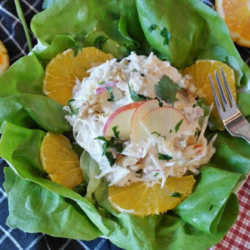
A typical example of food physics is mayonnaise, which is an oil-in-water emulsion. Under normal circumstances, oil and water do not mix, but thanks to a physical phenomenon, they blend together perfectly in a mayonnaise
Few specializations in the fields are’
- Dairy
- Sugar
- Alcohol
- Bakery
- Oil
- Meat, Fish
- Cereals
- Fruits and vegetables
Scope-
- Food Scientist
- Food Research Analyst
- Food Technologist
- Analytical Scientist
- Nutritionist
- Technical Brewer
Opportunities-
- Hotel industries
- Food processing
- Industries
- Distilleries
- Food packaging industries
Courses- B.Sc. (Food Science) 3 years PCB, B.Tech. (Food Science) 4 years PCM, Eligibility- 10+2 PCB/PCM
Advanced courses- M.Sc. M.Tech. and PhD. in Food Science
10. Marine Biology:
Marine biology is the study of marine organisms, their behaviours and interactions with the environment. Marine biologists study biological oceanography and the associated fields of chemical, physical, and geological oceanography to understand marine organisms.
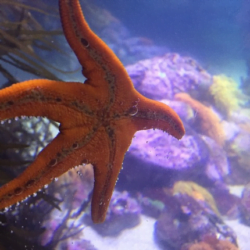
Scope and opportunities-
- Research Scientist
- Fisheries Biologist
- Aqua Culturist
- Environmental Scientist
Courses- B.Sc. (Marine Biology) 3 years: Eligibility- 10+2 PCB :: Advanced courses- M.Sc.
11. Fishery Science:
As the name suggests, it is the study of fishes, fish processing, oceanography, freshwater biology, marine biology, ecology. This is one of the fast growing industries.
India is focusing big time on this field and recebtly the government has created a seperate ministry to develop this activity in India. There are many companies who are doing great export businessfrom India and this gives a great opportunity of studying in details this subject.
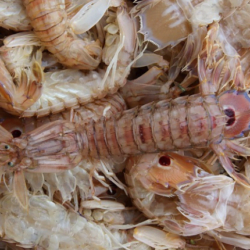
Scope and opportunities-
- Fisheries Biologist
- Fisheries Scientist
- Fisheries Manager
- Fisheries Officer
- Environmental Scientist
Courses- B.F.Sc. 4 years : Eligibility- 10+2 PCB :: Advanced courses- M.F.Sc. 2 years
12. Bio medical Sciences:
Biomedical science focuses on how cells, organs and systems function in the human body; an exciting and dynamic area that is highly relevant to the understanding and treatment of human diseases. Oxford is a highly respected and internationally recognised centre for biomedical research and students will benefit from tuition from leading experts working within a variety of nonclinical and clinical departments.

This course provides students with an intellectually stimulating education in modern molecular, cellular and systems biology and neuroscience. Please note this course does not provide medical training..
Scope-
- Research Scientist
- Clinical Research Coordinator
- Bio statistics and programming manager
- Scientist
- Lab Manager
Opportunities-
- Hospitals
- Science Research Labs
- Pharmacy Companies
- Government Health Organizations
Courses- B.Sc.: Eligibility- 10+2 PCB :: Advanced Course M. Sc.
13. Agriculture:
Agricultural science is a broad multidisciplinary field of biology that encompasses the parts of exact, natural, economic and social sciences that are used in the practice and understanding of agriculture. Professionals of the agricultural science are called agricultural scientists or agriculturists.
ICAR (Indian Council of Agricultural Research) conducts all India entrance examinations. Many state universities also conduct their entrance examinations
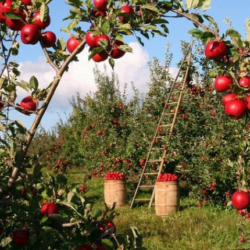
B.Sc. Agriculture includes study of multiple farming methods and their benefits and issues related to specific agricultural practices to increase productivity.
Specialization courses in higher levels-
- Agronomy
- Horticulture
- Floriculture
- Agriculture Economics
- Forestry
- Plant Breeding
- Agriculture Genetics
- Soil Sciences
- Hydroponics
Scope-
- Agriculture Officer
- Plantation Management
- Agriculture Research Scientist
- Business Development
Opportunities-
- Public and private sectors
- Agricultural Department
Courses- B.Sc. 4 years : Eligibility- 10+2 PCB
14. Molecular Biology:
Molecular Biology is the field of biology that studies the composition, structure and interactions of cellular molecules such as nucleic acids and proteins that carry out the biological processes essential for the cells functions and maintenance
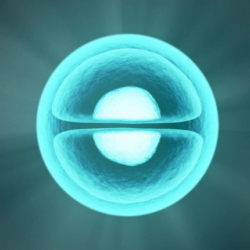
It deals with the molecular basis of biological activity. This field overlaps with other areas of biology and chemistry and genetics and biochemistry.
Scope-
- Biochemist
- Clinical Scientist
- Environmental Scientist
- Biotechnical Scientist
- Research Scientist
Opportunities-
- Research Labs
- Hospital Pharmacy Companies
- Agriculture Industries
Courses- B.Sc. 3 years: Eligibility- 10+2 PCB :: Advanced Course M. Sc.
15. Public Health:
Public health has been defined as “the science and art of preventing disease”, prolonging life and improving quality of life through organized efforts and informed choices of society, organizations (public and private), communities and individuals. Analysing the determinants of health of a population and the threats it faces is the basis for public health. The public can be as small as a handful of people or as large as a village or an entire city; in the case of a pandemic it may encompass several continents. The concept of health takes into account physical, psychological, and social well-being.

Public health is an interdisciplinary field. For example, epidemiology, biostatistics, social sciences & management of health services are all relevant. It is the study of fundamentals of public health, public health nutrition and social behavioral and environmental health
Scope and opportunities-
Students can work with
- Public health private or nonprofit organizations
- NGOs etc.
Courses- Bachelor in Public Health (BPH) 4 years/ 3 years : Eligibility- 10+2 PCB
So Biology gives immense number of options to further study and build a career up on. Its very important that you like and enjoy this subject. It also requires an investigative personality for many career options as these are mostly research based. Many courses give an immense scope for attractive career options which are the upcoming fields in India . Agriculture, Environment, Fisheries Food Sciences and Bio technology can be some options which are growing fields in India and lot of activities are happening in these with the participation of government, NGOs, private sector and a large number of start ups. This makes these career options attractive for those who are interested in Biology, Life sciences outside of medical and para medicals.
If you are interested in biology and want to check if one of these careers is suitable for you or no, take up the 4 STEP CAREER GUIDANCE with us. CLICK HERE


